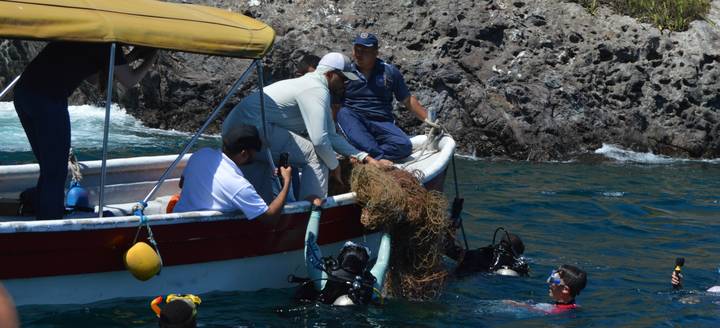Abandoned, Lost or otherwise Discarded Fishing Gear (ALDFG)

- © FAO/Alberto Gonzalo Sanz
Abandoned, lost or otherwise discarded fishing gear (ALDFG) is of increasing concern due to its numerous negative environmental and economic impacts, including navigational hazards and associated safety issues.
The ability of ALDFG to continue to fish (often referred to as “ghost fishing”) has detrimental impacts on fish stocks and potential impacts on endangered species and benthic environments.
The transboundary nature of the problem means that regional and international cooperation to deter ALDFG is vital.
International recognition of the ALDFG problem as one aspect of the larger global challenge of marine plastic litter is demonstrated through the large number of international organizations, activities and agreements that now focus on marine debris, as well as the numerous national and local level initiatives that are being implemented around the world.
At its thirty-third Session, the FAO Committee on Fisheries (2018) endorsed the Voluntary Guidelines for the Marking of Fishing Gear (VGMFG). The Committee also supported the development of a comprehensive global strategy to tackle issues relating to ALDFG and to support implementation of the Guidelines.
FAO responded to this mandate by developing a series of actions to be taken in the context of its work on Responsible Fishing Operations.
